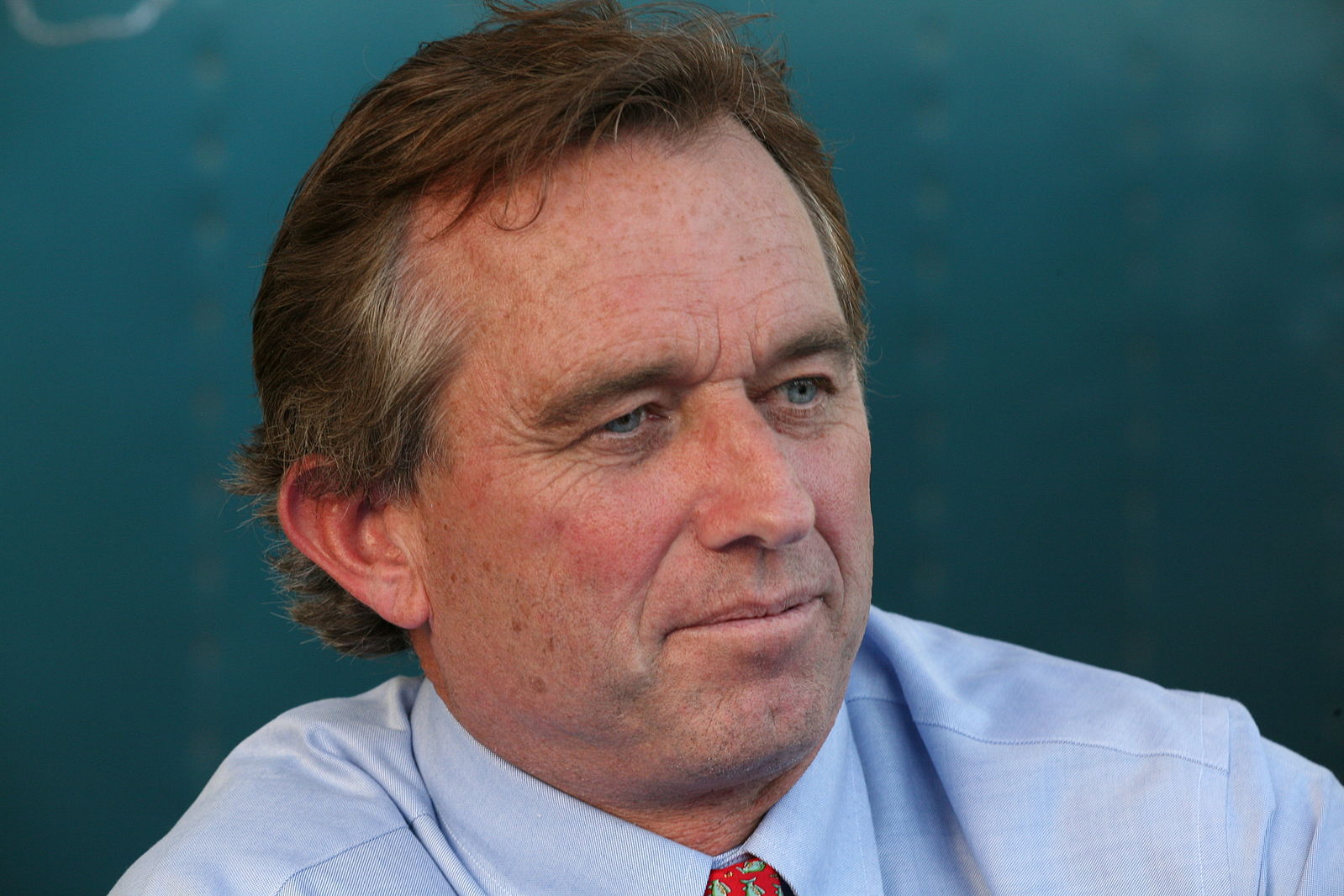Robert F. Kennedy Jr. recently opened up about the strained dynamics surrounding his controversial decision to meet with former President Donald Trump, revealing that his wife, actress Cheryl Hines, was far from supportive of the encounter. In an interview published on August 27, Kennedy Jr. clarified that Hines attended the meeting not out of political alignment or enthusiasm but out of a sense of duty to support her husband and ensure no hasty decisions were made.
Kennedy Jr., who suspended his independent presidential campaign earlier this month, acknowledged that his wife's feelings about the meeting were dominated by "trepidation" and "discomfort." He emphasized that her presence should not be mistaken for endorsement or agreement with his actions. According to Kennedy Jr., Hines’s participation was motivated by love and concern rather than any alignment with Trump’s political agenda.
The revelation comes amidst a growing backlash against Kennedy Jr. for his decision to back Trump, a move that has surprised and disappointed many of his former supporters. This backlash has extended to Hines, who has been criticized on social media for her perceived complicity in her husband's political choices. Notably, actor Bradley Whitford publicly condemned Hines for remaining silent as her husband endorsed Trump, a figure many view as antithetical to the values historically associated with the Kennedy family.
Kennedy Jr. responded to Whitford’s criticism with a mix of frustration and restraint. He expressed strong emotions regarding the attack on his wife, questioning why Whitford chose to target Hines rather than addressing Kennedy Jr. directly. Kennedy Jr. suggested that Whitford’s comments amounted to bullying and made it clear that he would have preferred a direct dialogue rather than a public condemnation aimed at his spouse.
This latest controversy follows Kennedy Jr.’s announcement on August 23 that he would suspend his campaign and throw his support behind Trump. In a statement, Kennedy Jr. cited systematic censorship and media control as key factors that made him doubt his chances of electoral success. He explained that his decision was driven by the same causes that led him to leave the Democratic Party and run as an independent—causes he now believes are best advanced by aligning with Trump.
The fallout from Kennedy Jr.’s endorsement of Trump has been swift and severe, particularly among those who had once admired his commitment to environmental causes and public health advocacy. His pivot towards Trump has been interpreted by many as a betrayal of the Kennedy legacy, and Hines, despite her reluctance, has been caught in the crossfire.
As Kennedy Jr. continues to navigate the backlash, his wife’s visible discomfort with his political decisions underscores the deep divisions and personal costs that such high-stakes political moves can incur. The couple’s relationship, once a private matter, has now become entangled in the public discourse surrounding Kennedy Jr.'s controversial political choices.



 Trump Says U.S. Attacks on Iran Will Continue, Warns of More American Casualties
Trump Says U.S. Attacks on Iran Will Continue, Warns of More American Casualties  Trump Warns Iran as Gulf Conflict Disrupts Oil Markets and Global Trade
Trump Warns Iran as Gulf Conflict Disrupts Oil Markets and Global Trade  Why did Iran bomb Dubai? A Middle East expert explains the regional alliances at play
Why did Iran bomb Dubai? A Middle East expert explains the regional alliances at play  Israel Strikes Hezbollah Targets in Lebanon After Missile and Drone Attacks
Israel Strikes Hezbollah Targets in Lebanon After Missile and Drone Attacks  Netanyahu Suggests Iran’s Supreme Leader Khamenei May Have Been Killed in Israeli-U.S. Strikes
Netanyahu Suggests Iran’s Supreme Leader Khamenei May Have Been Killed in Israeli-U.S. Strikes  Marco Rubio to Brief Congress After U.S.-Israeli Strikes on Iran
Marco Rubio to Brief Congress After U.S.-Israeli Strikes on Iran  U.S. Lawmakers Question Trump’s Iran Strategy After Joint U.S.-Israeli Strikes
U.S. Lawmakers Question Trump’s Iran Strategy After Joint U.S.-Israeli Strikes  Does international law still matter? The strike on the girls’ school in Iran shows why we need it
Does international law still matter? The strike on the girls’ school in Iran shows why we need it  Trump Announces U.S. Strikes on Iran Navy as Conflict Escalates
Trump Announces U.S. Strikes on Iran Navy as Conflict Escalates  Trump to Address Nation as U.S. Launches Strikes in Iran, Axios Reports
Trump to Address Nation as U.S. Launches Strikes in Iran, Axios Reports  Israel Launches Fresh Strikes on Iran After Death of Supreme Leader Ayatollah Khamenei
Israel Launches Fresh Strikes on Iran After Death of Supreme Leader Ayatollah Khamenei  EU Urges Maximum Restraint in Iran Conflict Amid Fears of Regional Escalation and Oil Supply Disruption
EU Urges Maximum Restraint in Iran Conflict Amid Fears of Regional Escalation and Oil Supply Disruption  Israel Declares State of Emergency as Iran Launches Missile Attacks
Israel Declares State of Emergency as Iran Launches Missile Attacks  Australia Rules Out Military Involvement in Iran Conflict as Middle East Tensions Escalate
Australia Rules Out Military Involvement in Iran Conflict as Middle East Tensions Escalate  AI is already creeping into election campaigns. NZ’s rules aren’t ready
AI is already creeping into election campaigns. NZ’s rules aren’t ready  HHS Adds New Members to Vaccine Advisory Panel Amid Legal and Market Uncertainty
HHS Adds New Members to Vaccine Advisory Panel Amid Legal and Market Uncertainty  Russia Signals Openness to U.S. Security Guarantees for Ukraine at Geneva Peace Talks
Russia Signals Openness to U.S. Security Guarantees for Ukraine at Geneva Peace Talks 































